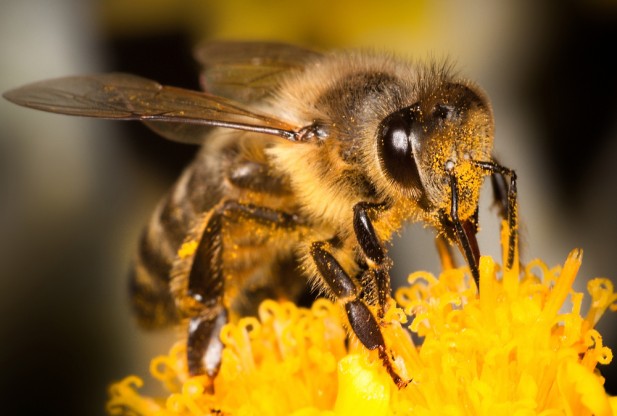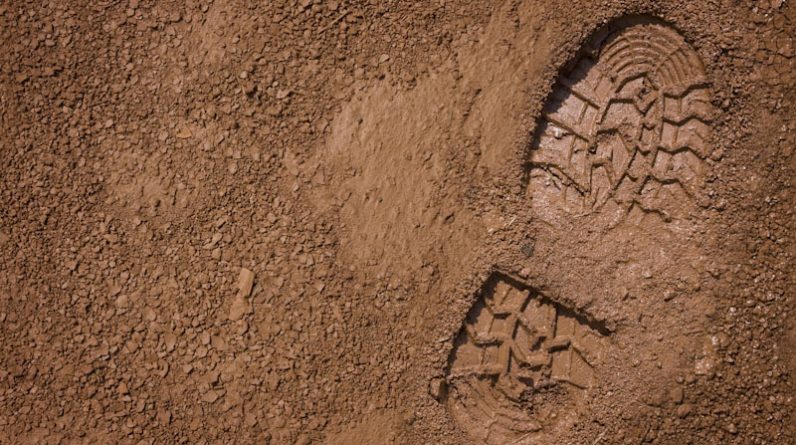The world’s eyes are currently fixated on the unprecedented spectacle of a former U.S. president, Donald Trump, under arrest. Trump stands accused of an astounding 37 felony counts, including allegations of mishandling classified national security documents following his exit from the White House. The sensationalism surrounding the trial has proved to be an irresistible spectacle for the media and public alike.
While this captivating drama unfolds, there is another narrative, largely overshadowed by the current legal circus, that demands our attention. Trump has been persistent in his warnings of an impending global food and water crisis – a prophecy initially dismissed as another Trumpian alarmist rhetoric. However, with each passing day and each new report of disrupted global food supply chains and dwindling water resources, his prophecy is garnering newfound attention and validity.
Earn Your Food Independence NOW
But what’s not talked about?
Amid the controversial indictment, the real possibility of a looming food crisis seems to have been conveniently swept under the rug. Is it a mere coincidence or a calculated strategy by the Democrats to deflect attention from a crisis they are ill-prepared to handle? One cannot help but question if the focus on Trump’s legal predicaments is partly to mask an inconvenient truth that a food and water shortage is indeed on the horizon.
Today, we stand on the cusp of a grim reality – a global food crisis. Increasing food prices, crop failures, geopolitical unrest, and water scarcity are pushing the world towards a catastrophic shortfall. Trump’s prophecies, once dismissed as eccentricities, now cast a terrifyingly prophetic shadow over the world as the two of the world’s top exporters of cereals are embroiled in a destructive and seemingly never-ending war that’s bound to cause more issues in getting us our daily bread. A war that Trump repeatedly promised he would end as soon as possible if he were in the White House.
Indeed, the signs are all around us. We’re witnessing a surge in food prices, with the cost of basic commodities such as wheat, corn, and soybeans reaching all-time highs. This inflation in food prices is more than just an economic nuisance; it’s a ticking time bomb waiting to explode. For those living on the brink, a rise in food prices means a direct threat to their survival.
Our food production systems, once the pride of human innovation, are failing us. Crop failures have become more frequent, owing to unpredictable weather patterns induced by climate change. Droughts, floods, and unseasonal heatwaves are turning our once fertile farmlands into barren landscapes. The global agricultural output, which was once steadily on the rise, has hit a plateau. The current crisis is not just about a single failed harvest; it is the harrowing prospect of serial crop failures in our future.
Geopolitical unrest, another cog in the wheel, is adding fuel to the fire. Political instability and conflicts can disrupt food supply chains, leaving countries vulnerable to food shortages. At the same time, food scarcity can ignite social unrest, creating a vicious cycle of instability and scarcity. As global powers jostle for control over dwindling resources, the specter of ‘water wars’ and ‘food wars’ looms large, threatening global peace and security.
Water scarcity, the invisible crisis, is perhaps the most insidious threat we face. Water, the elixir of life, is depleting at an alarming rate. Aquifers are drying up, rivers are running dry, and our once abundant reservoirs are reduced to parched earth. Without water, there is no agriculture, no food, and ultimately, no life. Our failure to manage this vital resource responsibly has left us teetering on the brink of a global water crisis.
Taken together, these factors are pushing us towards a catastrophic shortfall. This is not a hypothetical doomsday scenario; it’s a tangible, imminent threat. As each day passes without substantive action, the chances of us slipping into a global food and water crisis increase exponentially.
What can we do?
However, in the face of this adversity, we can’t afford to give in to fear and despair. It’s a call to arms, a call for us to rise to the occasion. We must unite in our efforts to protect our precious resources, to ensure our survival, and to secure the future for generations to come.
Trump’s prescient warnings serve as a powerful reminder of the imperative to act. Today, we can no longer afford to turn a blind eye to the looming crisis. As a society, we need to muster the political will, the technological prowess, and the collective courage to face these challenges head-on.
The path forward will undoubtedly be fraught with difficulties. Yet, as we’ve learned from past crises, human resilience and ingenuity know no bounds. It’s time to tap into these innate qualities as we brace ourselves for the battles ahead.
If the current crisis has taught us anything, it’s that the stakes couldn’t be higher, and the need to act couldn’t be more urgent. After all, it’s not just about us; it’s about the legacy we leave behind for our children and the world we envisage for them.
Trump was right, and he still is. Our food and water are indeed next. The choice now lies with us: do we falter, or do we fight? Today, let’s choose to fight. For our water, our food, our future, and for the right of every individual on this planet to live a life of dignity and abundance.
For the survivalists among us, this is not a shocking revelation but a situation they’ve been preparing for. However, for the rest of us, the gravity of the situation is slowly sinking in. This is not a mere bump in the road but a seismic shift that calls for significant changes in our lives.
Survival and self-reliance
The key to surviving this impending crisis lies in embracing self-reliance and sustainability. Depending on global supply chains for food and water, long critiqued for their fragility, could prove to be a fatal mistake. Instead, we must turn to cultivating our own food, harvesting and conserving water, and building self-sustaining communities. These are no longer options but necessities for survival in the face of an impending food and water crisis.
Home gardens, community farms, rainwater harvesting systems, and localized food networks can no longer be seen as quaint novelties but should be recognized as crucial survival strategies. Cultivating your own food reduces dependency on increasingly fragile global supply chains, and harvesting rainwater helps conserve a resource that’s predicted to be the next flashpoint in the global crisis.
The potential food and water crisis presents a clear and present danger. But it also offers an opportunity to restructure our communities, to promote resilience and sustainability, and to foster a new culture of self-reliance.
As we witness the legal crucible that engulfs Trump, we must not lose sight of the bigger picture – his forewarnings of an impending food crisis. It is no secret that Trump’s legacy has always been one of controversy. But the reality that his warning of a food crisis, initially dismissed as a mere distraction, could potentially be our imminent future is both ironic and unnerving.
Democrats and Republicans, embroiled in their political tussle, must pause to consider the severity of this looming crisis. The global food shortage is not a political issue, but a human one. It’s a threat that will not discriminate between political affiliations or geographical boundaries.
Now more than ever, the world needs to recognize the importance of self-reliance, sustainability, and the urgency of preparing for a potential food crisis. While the world watches the spectacle of Trump’s trial unfold, let us not overlook the more pressing narrative that is rapidly taking shape – a global food and water crisis.
In a world obsessed with political drama and power games, the reality of a food and water shortage is a grim reminder of our shared vulnerability. Regardless of the outcome of Trump’s trial, his warnings about a potential food and water crisis cannot be dismissed. The irony is as unsettling as it is real: a controversial figure like Trump could indeed be the harbinger of the harsh truth about our future.
As we stand on the precipice of an uncertain future, the only certainty seems to be this: self-reliance, community resilience, and sustainability are not just concepts, but essential survival strategies. We must act swiftly and decisively because, whether by prescient insight or mere chance, Trump’s warnings of an impending food and water crisis might indeed be our chilling reality.
As Trump’s courtroom drama unfolds, it’s time to acknowledge and address a more profound crisis that looms large. It’s time to view the warnings not as a diversion but as an urgent call to action. The need for self-reliance and sustainability has never been greater.
In the courtroom of history, will we be the generation that failed to heed the warning of an impending crisis? Or will we rise to the occasion, embody the spirit of self-reliance, and face the challenges head-on? Only time will tell.








![10 common plants you can turn into flour [Part I] 12 shutterstock 374664940 edited](https://modernsurvivalknowledge.com/wp-content/uploads/2024/04/shutterstock_374664940_edited-796x445.jpg)
![10 common plants you can turn into flour [Part II] 14 shutterstock 376265131 edited](https://modernsurvivalknowledge.com/wp-content/uploads/2024/04/shutterstock_376265131_edited-796x445.jpg)